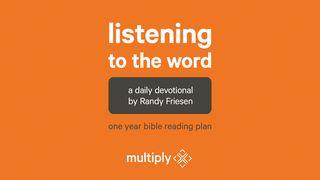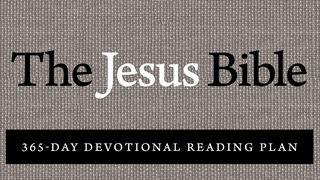Plan info
For The Love Of GodSample

A SUBTLE THEMATIC CONNECTION links Job 28 and 1 Corinthians 14.
People do not often understand just how rare real wisdom is. According to chapter 28, Job understands. The chapter is a poetic reflection on this very theme: “But where can wisdom be found? Where does understanding dwell?” (Job 28:12). Job lists the places wisdom is not found and concludes, “It is hidden from the eyes of every living thing, concealed even from the birds of the air. Destruction and Death say, ‘Only a rumor of it has reached our ears’ ” (Job 28:21-22). Where then is wisdom found? “God understands the way to it and he alone knows where it dwells, for he views the ends of the earth and sees everything under the heavens” (Job 28:23-24). And what is God’s own summary? “The fear of the Lord—that is wisdom, and to shun evil is understanding” (Job 28:28).
Doubtless in the context of the book of Job this chapter accomplishes several things. It pricks the pretensions of the “comforters” who think themselves so wise. It demonstrates that despite his protests, Job is still profoundly God-centered in all his thinking. Even while he publicly raises questions about God’s fairness in his own case, Job insists that all wisdom finally rests in God. Moreover, because such wisdom is irretrievably tied to shunning evil, Job demonstrates by his poetic utterance that not only does he retain humility of mind before the Almighty, but his commitment to righteous living is profoundly tied to his faith in God’s wisdom, to his own sheer God-centeredness.
There is no direct tie between this passage in Job and 1 Corinthians 14, of course. Wisdom is not specifically an issue in 1 Corinthians 14. Nevertheless, when one reads 1 Corinthians 14 after reflecting on Job 28, it is hard not to see how Paul’s wise counsel regarding the use of the grace-gifts in the congregation taps into this larger picture of sheer God-centeredness. The first part of 1 Corinthians 14 compares and contrasts prophecy and tongues. The apostle’s argument is that the key criterion is intelligibility. One can overhear the argument in the background. Some Corinthian Christians like to engage in a display of gifts that inevitably promotes someone’s reputation. But Paul insists that intelligibility is at stake, both for believers and for unbelievers who may be present. In other words, godly wisdom in this matter concludes that the good of others is paramount; that entails lowliness of mind. The aim is not to gain a reputation for spiritual power, but to encourage others to conclude that God is truly present (1 Cor. 14:25)—and that demands intelligible communication. Even the instructions to limit tongues and evaluate prophecies disclose a stance that is self-denying, honoring to God, God-centered. In short: it is wise.
About this Plan

A daily devotional for discovering the riches of God's word: For the Love of God is a daily devotional designed to walk a person through the Bible in a year while assisting the reader in discovering the riches of God's W...
More
We would like to thank The Gospel Coalition for providing this plan. For more information, please visit: thegospelcoalition.org









